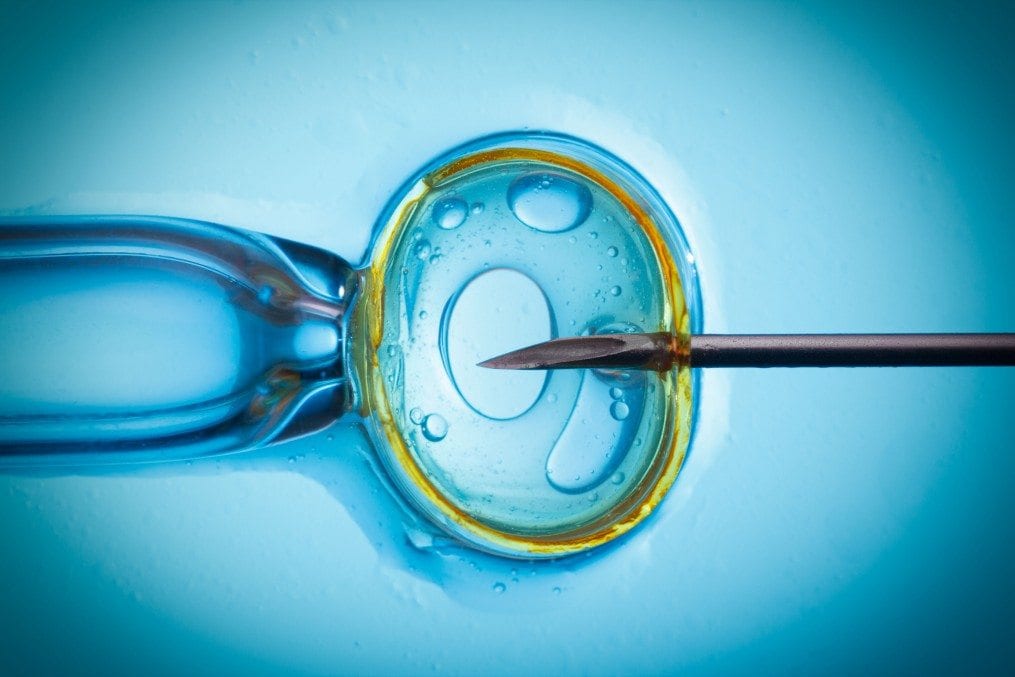5 cancer myths de-bunked

However it enters your life, cancer is horrific. Whether you’ve been diagnosed, or someone you love is having their life taken over by the disease.
And that’s a whole lot of people, considering an estimated 2.5 million people in the UK today have had a cancer diagnosis (up by almost half a million in the previous five years according to cancer charity Macmillan).
The fact that the C-word is so loaded, and surrounded by so much confusion, can make the horrible situation even more difficult.
‘Being diagnosed can be a very daunting and difficult time. Just trying to understand what this diagnosis could mean and how it will change the way you live your life is a big step,’ says Sharon Lidstone, specialist cancer nurse form AXA PPP healthcare.
To mark World Cancer Day on February 4th, she offers us a little bit of clarity.
1. Myth: A cancer diagnosis is a life sentence
We all read news stories that tell us the number of people surviving cancer is increasing. However, it can be very hard to bear this in mind when you receive a diagnosis as fear and worry can easily take over. All cancers differ, but it is worth knowing that 50 per cent of people with cancer will now survive five or more years – and some cancers are known to have even higher survival rates, especially when detected early.
It is important to try to take things one step at a time and ask the right questions of your specialist so that you are well informed about the cancer you have been diagnosed with. Knowledge will help you understand and cope with what you and your loved ones will face as treatment gets underway.
2. Myth: Life stops when you have cancer
Life changes dramatically, but it doesn’t stop. Depending on how you experience your symptoms, you can decide how much your daily life needs to change. Always ask your medical team about continuing with things that make you feel good such as exercising and other hobbies, work and the extent to which you can manage your home life.
Medicines can help treat symptoms to enable you to function as fully as possible and much of cancer treatment can be undertaken as an out-patient, meaning long stays in hospital are not necessary. Certain cancer treatments are more limiting than others and it will help you to find out as early as possible, when your treatment plan has been decided, what you might expect to experience in the way of symptoms as a result.
3. Myth: Undergoing cancer treatment means you have to stop working
While it may not be possible or preferable for everyone to continue working, for many people the workplace provides a sense of purpose, security and normality. Stress in the workplace while dealing with cancer is not recommended, however, so it is important to establish work duties with managers and reasonable performance expectations.
Flexibility in your working hours and ensuring that you allow the time and space to deal with treatment is crucial, too. Having the support of managers and colleagues can be a hugely positive influence when living with cancer. A cancer diagnosis means that you may have to make significant changes to your working life, but in many instances it does not mean that you will have to stop working altogether.
4. Myth: A positive attitude will help you beat cancer
Being positive can definitely help – especially if it’s in your personality to approach problems with optimism. But this doesn’t work for everyone and it’s not surprising that many people struggle to find a positive outlook while experiencing the worry, fear and sickness caused by cancer and many treatments. No one should feel like they have to put on a front and pretend to be positive.
The real route to positivity comes through putting in place the support mechanisms that work for you. This might mean making sure you have a trusted person to speak to about your true feelings surrounding your illness, be that a friend, a professional counsellor or an adviser from a charity. Getting help to tackle the practicalities of living with cancer, such as sorting out the financial implications and looking after children and home life, can remove a lot of stress and allow you to concentrate on taking care of yourself.
Read more: Mindfulness – a beginner’s guide5. Myth: Medical professionals are the only people who can help
One of the greatest resources available can be other people who have experienced cancer. No two people have the same experience, but hearing from others who have struggled with telling family and friends about their diagnosis, who have been through treatment and who can give helpful pointers for keeping energy levels up and taking a holistic approach to your general wellbeing can be very useful.
Recommended blogs are a great way to find this type of information and taking part in safe forum discussions can provide a sense of shared community, if that appeals. Not everyone wants to engage with other cancer sufferers but, if you are inclined to, you may find that you feel better supported while going through treatment. You may find the following resources from Macmillan and Cancer Research
.
Want to donate to Cancer Research to beat cancer sooner? Click here, then encourage others to do so on Twitter using #WeWillUnite.











